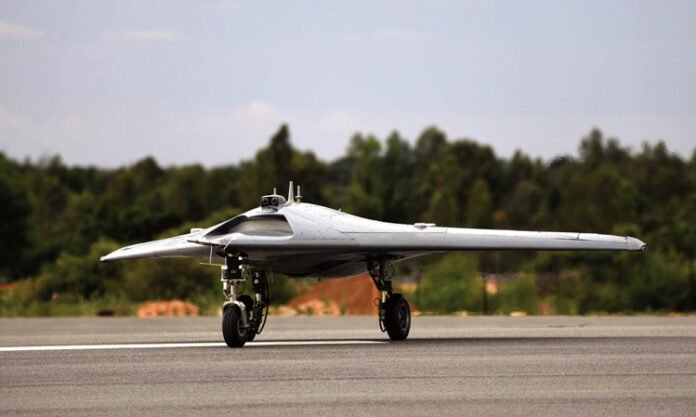New Delhi: Scientists at the Aeronautical Development Establishment (ADE), a key laboratory under India’s Defence Research and Development Organisation (DRDO), are making significant strides in developing the country’s Remotely Piloted Strike Aircraft (RPSA), commonly referred to as the Unmanned Combat Aerial Vehicle (UCAV). This project is crucial for enhancing India’s defence capabilities and positioning it among nations with advanced drone technology.
The RPSA program aims to create a stealthy, autonomous drone capable of carrying out precision strikes. The project has transitioned from the Aeronautical Development Agency (ADA) to ADE to leverage ADE’s expertise in UAV technology. This move is part of a broader strategy to focus ADA’s resources on manned fighter jet programs, such as the Tejas Mk-2 and Advanced Medium Combat Aircraft (AMCA).
The RPSA will feature advanced stealth technology to minimise its radar signature, allowing it to evade enemy detection. The aircraft is designed for autonomous operation, including take-off and landing, which is being validated through various flight tests of technology demonstrators like the Stealth Wing Flying Testbed (SWiFT). The RPSA will be equipped with an internal weapons bay for carrying precision-guided munitions, enhancing its strike capabilities without compromising its stealth profile.
Recent flight trials have demonstrated significant advancements in the technologies required for the RPSA. The SWiFT demonstrator, which has successfully completed multiple test flights, showcases the maturity of India’s UAV technology. This includes successful autonomous landings without ground-based radar support, utilising onboard sensor data fusion and satellite navigation systems. This flight demonstrated the ATOL (Autonomous Take-Off and Landing) capability of the stealth UAV, leveraging indigenous technologies developed in-house by ADE.
Despite these advancements, there are concerns regarding ADE’s ability to deliver on the ambitious RPSA project. Biju Uthup, the founding Project Director of the UCAV program, has raised alarms about potential setbacks due to ADE’s mixed track record in UAV development. Notably, the Tapas MALE UAV program faced defunding after failing to meet technical requirements.
A senior DRDO official revealed that the Indian Air Force (IAF) has expressed confidence in the project, which could positively influence the CCS. “Scientists have been instructed to prioritise technologies that minimise the RCS (Radar Cross Section) of the RPSA using AI tools. This will enable the aircraft to evade adversary air defences effectively. It’s a challenging task, but that’s what makes the UCAV mission both exciting and critical,” the official stated.
The success of the RPSA program is critical not only for India’s defence strategy but also for establishing its position in the global UAV market. A robust UCAV capability would enable India to conduct complex operations independently and enhance its strategic deterrence.
The work being done by ADE scientists on India’s UCAV RPSA program is both vital and promising. With ongoing technological developments and flight testing, India is moving closer to realising its goal of a sophisticated unmanned strike capability. However, addressing the challenges and ensuring consistent progress will be essential for the successful implementation of this ambitious project.
Raksha Anirveda's editorial desk team brings in the collective experience of creative professionals - a fine mix of senior copy editors, writers, proofreaders and designers. Working as a team, they continuously create, manage, and curate content to sustain the magazine's profile and reputation in line with market trends and achieve magazine's goal.





